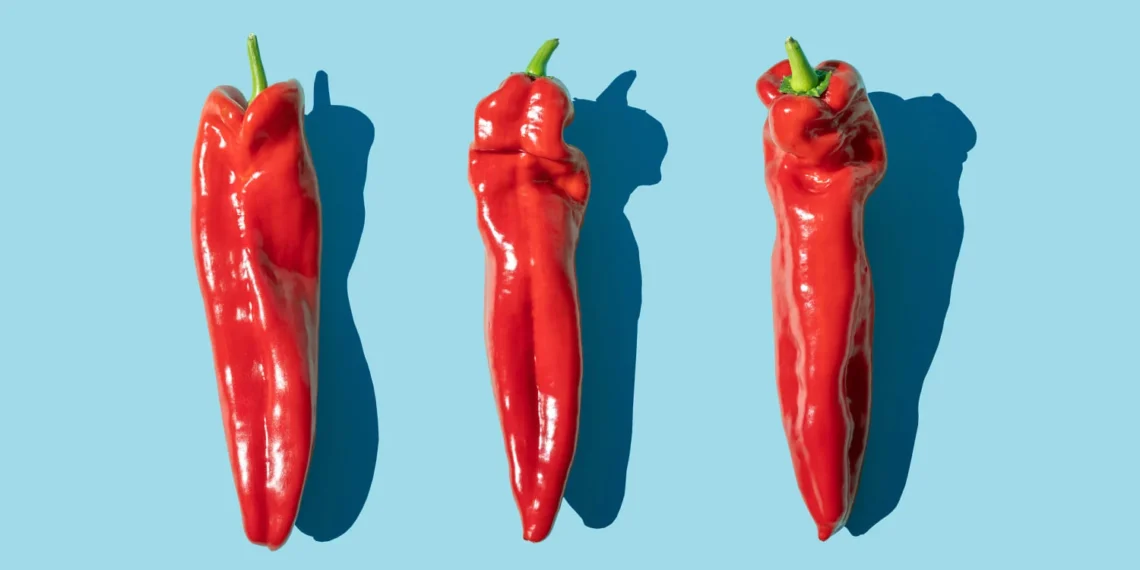Is Spicy Food Good for You? Here’s What Happens When You Eat It
Spicy food can turn any meal into a thrilling experience, bringing both pain and pleasure to your taste buds. Some people crave the heat, while others find it overwhelming. But does spicy food have any actual health benefits, or can it be risky?
To understand how spicy food affects the body, let’s dive into the science behind it, its potential health benefits, and some precautions to consider.
What Makes Food Spicy?
The “hot” sensation in spicy food comes from capsaicin, a compound in chili peppers like cayenne, serrano, and habanero. Capsaicin levels vary among peppers, which is measured on the Scoville scale. For instance, a jalapeño ranks around 5,000 Scoville Heat Units (SHU), while a Carolina Reaper can exceed 1.5 million SHU.
How Spicy Food Affects Your Body
When you eat something spicy, capsaicin binds to receptors in your mouth called TRPV1, which send pain signals to the brain. This sensation tricks your body into feeling as if it’s overheating, which may slightly raise your heart rate and body temperature. As a result, you may sweat, flush, or experience a runny nose.
Once it reaches the digestive tract, capsaicin can irritate the esophagus or stomach lining, potentially causing discomfort. In the intestines, it may speed up digestion, which can lead to diarrhea for some people. As it leaves the body, capsaicin can cause a “burning” sensation in the rectum.
Interestingly, the pain from spicy food can also prompt a release of endorphins, leading to feelings of relief or even euphoria for some.
Why Some People Tolerate Spicy Food Better
Spice tolerance can vary based on genetics, exposure to spicy food, and individual characteristics. People with fewer TRPV1 receptors tend to perceive less heat, making them more tolerant to spice. Those who grew up eating spicy foods may build a higher tolerance over time, as their bodies become accustomed to the sensation.
Potential Health Benefits of Spicy Food
Spicy food has been consumed for thousands of years and is generally safe. Capsaicin, the main active compound in spicy foods, has antioxidant and anti-inflammatory properties. It may also have antimicrobial effects, which is why spices are often used to preserve food in warmer climates.
Research suggests that spicy foods may offer health benefits, such as:
- Longevity: A 2015 study found that people who eat spicy food regularly may have a lower risk of death, although more research is needed.
- Heart Health: Capsaicin’s anti-inflammatory properties may benefit heart health. A 2020 study found that people who eat chili peppers have a lower risk of heart disease and cancer.
- Metabolism: Spicy foods may slightly boost metabolism, which can help digestion for those with slower gut motility.
Risks of Spicy Food
While most people can enjoy spicy food without issues, high spice levels or large quantities can cause gastrointestinal distress, heartburn, or acid reflux. People with conditions like irritable bowel syndrome (IBS) or Crohn’s disease may experience worse symptoms after eating spicy foods. Additionally, spicy foods may exacerbate discomfort for people with ulcers or anal fissures.
Rarely, extremely spicy foods can cause severe reactions. For this reason, experts advise against participating in extreme spicy food challenges.
How to Cool Down After Eating Spicy Food
If the heat gets too intense, avoid drinking water, as it can spread the capsaicin around your mouth. Instead, try foods with protein or fat, such as:
- Milk
- Ice cream
- Yogurt
- Avocado
These foods help to neutralize the capsaicin and can provide relief.
Bottom Line
Spicy food can be a fun and flavorful addition to a healthy diet, and it may offer some health benefits. Just listen to your body and know your limits. If you enjoy the heat, spice up your meals in moderation!
This article was rewritten by JournosNews.com based on verified reporting from trusted sources. The content has been independently reviewed, fact-checked, and edited for accuracy, neutrality, tone, and global readability in accordance with Google News and AdSense standards.
All opinions, quotes, or statements from contributors, experts, or sourced organizations do not necessarily reflect the views of JournosNews.com. JournosNews.com maintains full editorial independence from any external funders, sponsors, or organizations.
Stay informed with JournosNews.com — your trusted source for verified global reporting and in-depth analysis. Follow us on Google News, BlueSky, and X for real-time updates.














